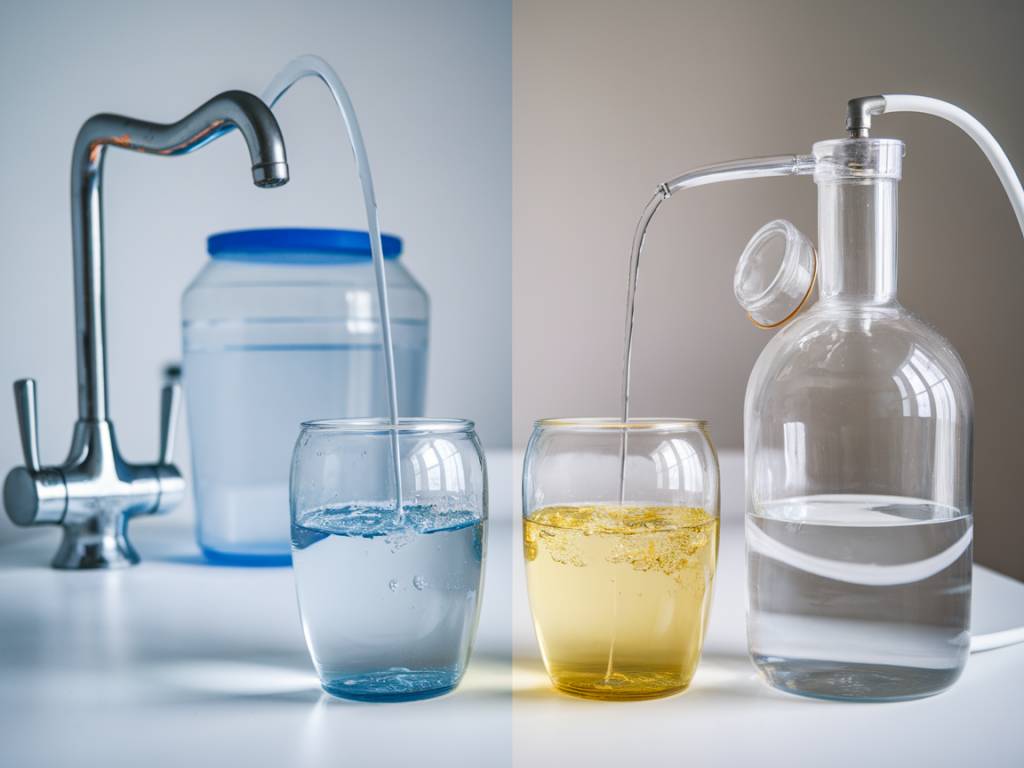Reverse Osmosis vs. Distillation: Which Water Purification Method Works Best?
Water purification plays a crucial role in ensuring safe and clean drinking water. Whether you’re concerned about contaminants, taste, or overall water quality, choosing the right purification method can make all the difference. Two of the most popular methods—reverse osmosis (RO) and distillation—each have their strengths and drawbacks. But which one is the best for your home?
Understanding Reverse Osmosis
Reverse osmosis is a widely used filtration technology that effectively removes contaminants by forcing water through a semipermeable membrane. This process eliminates impurities such as bacteria, viruses, dissolved salts, and chemical pollutants.
How Does Reverse Osmosis Work?
Reverse osmosis systems typically consist of multiple stages, including pre-filters, a semipermeable membrane, and post-filters. Here’s how it works:
- Water passes through a pre-filter that removes sediment and large particles.
- Water is then pushed through a semipermeable membrane that filters out dissolved solids and contaminants.
- Finally, a post-filter polishes the water, improving taste and removing any residual odors.
Advantages of Reverse Osmosis
Reverse osmosis has several benefits, making it an attractive option for home water purification.
- Removes a wide range of contaminants: RO can filter out up to 99% of dissolved solids, heavy metals, and harmful chemicals.
- Improves taste and odor: RO eliminates chlorine, bacteria, and other substances that affect water flavor.
- Easy installation: Many RO systems are designed for under-sink installation, making them convenient for households.
Disadvantages of Reverse Osmosis
Despite its effectiveness, reverse osmosis does have some drawbacks:
- Water wastage: RO systems can waste a significant amount of water during filtration.
- Slow filtration rate: Since RO forces water through a membrane, the process takes longer than other filtration methods.
- Removes beneficial minerals: Essential minerals like calcium and magnesium are also eliminated, which some experts argue affects water quality.
Understanding Distillation
Distillation is one of the oldest water purification methods, relying on heat to purify water. By boiling water and collecting the condensed steam, distillation removes contaminants that do not evaporate.
How Does Distillation Work?
The distillation process is relatively straightforward, consisting of three main steps:
- Water is heated until it turns into steam.
- The steam rises and leaves contaminants, heavy metals, and minerals behind.
- The steam cools and condenses back into purified water.
Advantages of Distillation
Distillation offers several notable benefits:
- Effective against most contaminants: It removes bacteria, viruses, heavy metals, and many chemicals.
- No filter replacements: Unlike RO systems, distillers do not require frequent filter changes.
- Consistent purification: The process ensures uniform water purity each time.
Disadvantages of Distillation
Distillation is effective but comes with some limitations:
- Energy-intensive: The boiling process requires significant energy consumption.
- Slow process: Distillation takes much longer than RO, making it less practical for large household water needs.
- Flat taste: Since distillation removes minerals, some people find the water tastes bland.
Which Water Purification Method Is Best for You?
The choice between reverse osmosis and distillation depends on your specific needs:
- If you’re looking for a highly efficient, cost-effective solution for daily drinking water, a reverse osmosis system may be the best option.
- If you need the highest level of water purity and don’t mind the slow process or higher energy use, distillation might be right for you.
- For ultimate purification, some homeowners opt for a combination of both methods—using reverse osmosis for regular consumption and distillation for specialized needs.
At the end of the day, investing in clean water is always a smart decision. Whether you choose reverse osmosis or distillation, both methods provide a significant upgrade from untreated tap water. What matters most is finding the method that fits your budget, convenience, and household requirements.
